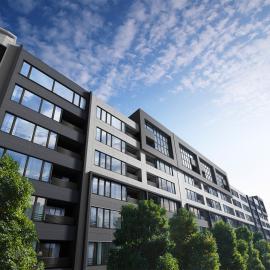Who said all Japanese apartments lose their value immediately after purchase?

Real estate marketing and research firm, Attractors Lab, has compiled a list of the apartment developers and the resale value of their apartments 10 years after completion. In top spot was Marubeni Corporation.
The data is based on apartments built in the last 10 years that were listed for sale on the secondary market in 2010. The purchase price when brand new was compared to the asking price when the property was re-listed in 2010. The data only included developers who have built over 30 buildings.Read more
Is it really smart to buy a South-facing apartment?
 When looking at an apartment to buy or rent in Japan, everyone is told to look for places that are south-facing as these rooms get the most sunlight throughout the day and year round. Real estate search engines even have "South-facing" as a search option.
When looking at an apartment to buy or rent in Japan, everyone is told to look for places that are south-facing as these rooms get the most sunlight throughout the day and year round. Real estate search engines even have "South-facing" as a search option.
As such, South-facing apartments command a premium price over units facing other directions. Many consider North-facing to be the most undesirable as it receives the least direct sunlight. It would seem safe to assume that purchasing a South-facing apartment would be a sure-bet. But is this really the case?
an apartment facing which direction will increase in value after you purchase?
A recent survey by Attractors Lab has shown some interesting results. Read more
Renting vs. buying in Japan: How to cut your rent by up to 50%
Japan's real estate market offers relatively high rental yields. Coupled with a low cost of funds (1% floating interest rates from Japanese banks, although rates on investment loans may be higher) the net return is one of the most appealing features to many investors.
The typical gross rental yield for an apartment in central Tokyo is between 4-6%. This may be as low as 2~3% for a high-end luxury expatriate apartment, and over 10% for a studio or one-room type apartment in an older building.Read more
Popular Myths about Japanese Real Estate
There is a lot of incorrect and misleading English information floating around about the Japanese real estate market. I chose this recent PR-type article from PropGoLuxury.com as a typical example of the type of misinformation.
"Japan real estate remains one of the priciest in the world. Tokyo came fourth in the Global Property Guide's 2009 survey of the world's most expensive markets, behind Monaco, London and Moscow. The average price for an apartment in Tokyo city centre is a staggering US$17,998 per sqm"
FALSE
Freehold vs. Leasehold: The different types of land ownership in Japan
There are two main types of land rights in Japan - freehold and leasehold. Leasehold is broken into two types - surface rights and right to lease.
- Freehold (Shoyuken): The absolute ownership of land and building.
- Surface Rights (Chijoken): The land is leased, while owners of the building and units have the right to buy/sell as they please. This form is most commonly found on land used for apartment buildings.
- Right to Lease (Chinshakuken): The land is leased, while owners of the building and units must attain the landowner's approval before they can transfer or sublease. Also, before rebuilding the structure on the land, the landowner's permission must be obtained. This form of leasehold is mainly used for land designed for individual houses, but not often for apartment buildings.
